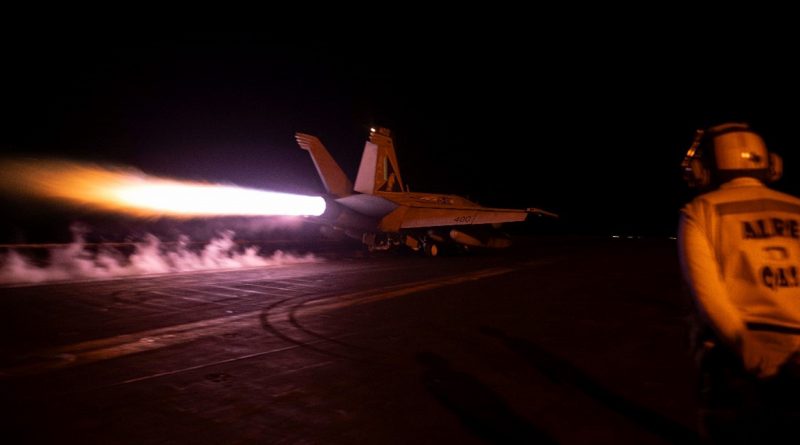Conflict with Houthi Militants Escalates in Red Sea
Madeline Kruszczynski
Staff Writer
On January 11, two United States Navy SEALS were killed in a raid of a Houthi militant boat, highlighting a recent uptick in conflict within the Red Sea. The conflict first escalated on November 19, 2023, when members of the group hijacked an Israeli-owned cargo ship. Since the initial attack, the Houthis have conducted more than two dozen attacks with drones, missiles, and speed boats. Following the most recent escalation, the U.S. and United Kingdom conducted airstrikes against over a dozen Houthi targets in Yemen, as reported by CNN.
The Houthis, also referred to as Ansar Allah, are an armed faction that controls the majority of Yemen. The Houthis became an established group in the 1990s, first gaining international attention after initiating a rebellion against the Yemeni government under President Ali Abdullah Saleh. This rebellion spanned from 2004 to 2014 according to the Arab Center in DC. In September of 2014, the Houthis seized control of Hodeida, Yemen’s capital, marking their political introduction.
The political control of the Houthis in Yemen elicited international backlash, prompting a military intervention spearheaded by Saudi Arabia with widespread support from the Arab world and the United States. Attacks by foreign powers against the Houthis, in combination with the negligent government in power, led to what humanitarian organizations declared one of the worst humanitarian crises in the world, as reported by The Human Rights Watch.
The violence between the Houthis and international powers persisted until the U.S. withdrew from the conflict in 2018. Since this disengagement, the Houthi faction has struggled to gain support in Yemen, and violence on a smaller scale has continued. In an effort to gain greater domestic support and unity, the Houthis have recently redirected their focus to engaging in conflict against Israel to support the cause of Arab Palestine. This support for Palestine has been demonstrated through Houthi led attacks on Israeli-owned ships on the Red Sea.
The Houthi attacks on the Red Sea are underpinned by a few motives. Internally, the ongoing conflicts in the Palestinian-Israeli conflict has served as a catalyst to foster a cohesive sense of Arab unity across the wider Middle East, and in the Houthis’ context, within the Yemeni population. This collective sentiment has garnered a heightened sense of pride and unity against what the population sees as the common enemy- Israel. Moreover, as prominent global actors, including the U.S., engage in dialogue and negotiations with the Houthi faction, the Yemeni population has begun to see the Houthis as a more legitimate governmental body, despite not being officially recognized as Yemen’s government.
From a broader ideological perspective, the origins of the Houthi movement are similar to those of Hamas. The Houthi ideology is represented by its slogan, “Death to America, Death to Israel, curse the Jews, and victory to Islam,” as reported by Reuters. Thus, this alignment serves as a broader narrative that resonates within Yemen and with the Houthi’s historical roots.
It is important to note, however, that although the Yemeni Houthis are conducting these attacks, the Houthis are funded by Iran, as reported by the United States Institute of Peace. Thus, the response by the U.S. and UK to conduct airstrikes against the Houthi targets in Yemen have broadened the conflict to more closely resemble proxy war between Western forces and Iran, says Politico. In response to the conflict, the leader of the Houthi faction, Abdulmalik al-Houthi, commented, that it is, “a great honor and blessing to be confronting America directly,” as reported by The Guardian.
Although the conflict is currently confined to the Red Sea, experts warn that the attacks have already impacted the broader economy. The Red Sea is one of the most important arteries in the global shipping system, and in response to the conflict in the region, carriers have already diverted upward of $200 billion in trade away from the route, reports CNBC.
This disruption in shipping has resulted in increasing freight rates, additional surcharges, and longer shipping times, all of which could possibly lead to future inflation across the globe. On January 3, the White House made a joint statement with Canada, Germany, the UK, and eight other countries, stating that “The Houthis will bear the responsibility of the consequences should they continue to threaten lives, the global economy, and free flow of commerce in the region’s critical waterways,” reports Al Jazeera.
Image courtesy of U.S. Central Command

